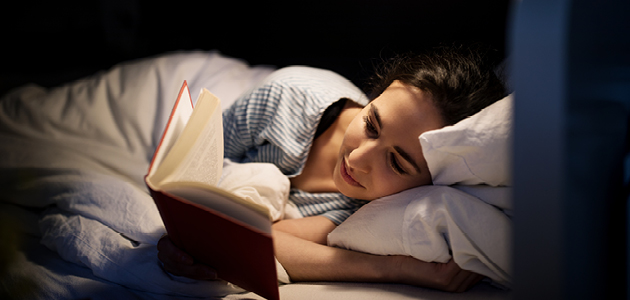There’s nothing more body and soul restoring than a good night’s sleep, but if you’re someone who is often overwhelmed by stress and anxiety, sleep can sometimes be hard to come by.
We all have the odd bad night every once in a while, but sleep disturbances including insomnia can actually be a common symptom of various types of anxiety including OCD, generalized anxiety disorder, and PTSD .1 Unfortunately, not getting enough sleep can also exacerbate symptoms of anxiety, making it a vicious cycle.
If you suspect that anxiety is the reason behind your inability to get to sleep or stay asleep, it’s important to talk to you doctor. Anxiety is both common and treatable, so there’s no reason to be ashamed if you’re experiencing it—and there’s certainly no need to continue suffering when help is available.
Your doctor might suggest cognitive behavioural therapy, which is a common treatment for anxiety disorders, and medications that can help you cope with the symptoms caused by your anxiety.
In the meantime, there are some steps you can take to try to relax and reduce some of the anxiety that’s keeping you up.
- Examine your sleep hygiene. Make sure you’re not sabotaging your sleep by doing things that may be making it difficult for you to wind down, and watch what you’re eating in the hours before bedtime. Next, look at your sleep environment. Is your bedroom the correct temperature (not too hot, and not too cold)? Are you using room darkening blinds or curtains to keep out ambient light? Do you stick to a regular bedtime schedule, even on the weekends? Are your mattress and pillow comfortable and supportive? Eliminating impediments to sleep is a good first step.
- Breathe. Deep breathing encourages your body’s relaxation response, and it’s something you can do in just a few minutes to feel better almost immediately when you’re anxious. Visit HelpGuide for step-by-step deep breathing technique instructions, as well as other simple relaxation strategies.
- Create a wind-down routine. Get your body ready to sleep by doing quiet, relaxing things at least 30 minutes before bed. Read a book, listen to some calming music, put down your devices, turn off all your screens, and lower your lights. Doing these sorts of activities is a signal to your body that it’s okay to begin letting go of the day and to start slowly sliding into sleep.
- Pray or meditate. The purpose of these activities is to help you to quietly focus on something other than whatever thoughts may be swirling around in your mind. Repeat well-loved prayers or try some mindful meditation techniques to help you relax your body and quiet your mind.
- Write it down. Sometimes it’s hard to let go of problems that are weighing on your mind, mental to-do lists, and other noisy thoughts. Keep a pen and paper by your bedside, and give your mind permission to let these thoughts and concerns go by jotting them down before you go to sleep, knowing you can revisit them in the morning when you’re rested and ready to tackle them again.
- Be patient with yourself. Learning how to manage anxiety takes time and effort—and often professional help—so don’t be discouraged if the first thing you try doesn’t immediately solve the problem. Keep exploring options and practicing relaxation methods until you find a routine that does start to work for you.
For more healthy sleep tips, visit Sleep Foundation, and for strategies to help manage anxiety, visit Healthline.
SOURCES
1 https://www.sleepfoundation.org/mental-health/anxiety-and-sleep
420275 CAN/US (12/21)




